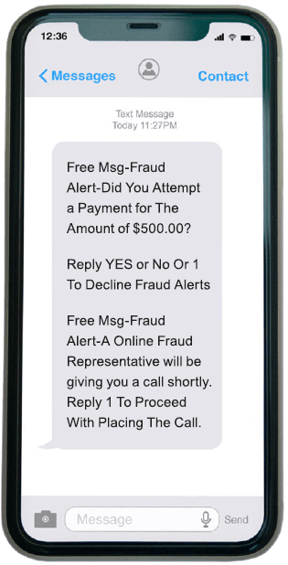What is an "account takeover"?
An account takeover happens when a fraudster poses as a financial institution to get your account or personal information. Once the fraudster has access to your account, they can make unauthorized transactions.
How does it work?
An account takeover begins by a fraudster sending a text message to your mobile phone. They usually claim they're from a financial institution's fraud department. They ask you to confirm a suspicious payment that was sent from your account - this may not be true and may be part of the fraud.

If this is a fraud attack, the fraudster typically follows up with a phone call and asks fr your personal information to "cancel the payment." [Note: Banks will never call to ask for your personal information.]
The account takeover fraud usually begins on a Friday, after business hours, and runs through the weekend.
How can you prevent account takeover fraud?
If someone claiming to be from your bank contacts you by phone, email, or text message and wants you to share your personal information, consider it fraud.
If you receive a text message (or email) like the one shown here, do not reply to the sender. Ignore the message and do not call any phone numbers listed in the text.
If you receive a phone call that seems to be a phishing attempt, end the call immediately. Be aware that area codes can be misleading: a local area code does not always guarantee that the caller is local.
If you feel you've been the victim of fraud, contact your financial institution immediately.
Avoid Fraud - do not share your personal information with anyone posing as your financial institution.
The views, information, or opinions expressed in this article are solely those of the author and do not necessarily represent the views of Citizens State Bank and its affiliates, and Citizens State Bank is not responsible for and does not verify the accuracy of any information contained in this article or items hyperlinked within. This is for informational purposes and is no way intended to provide legal advice.